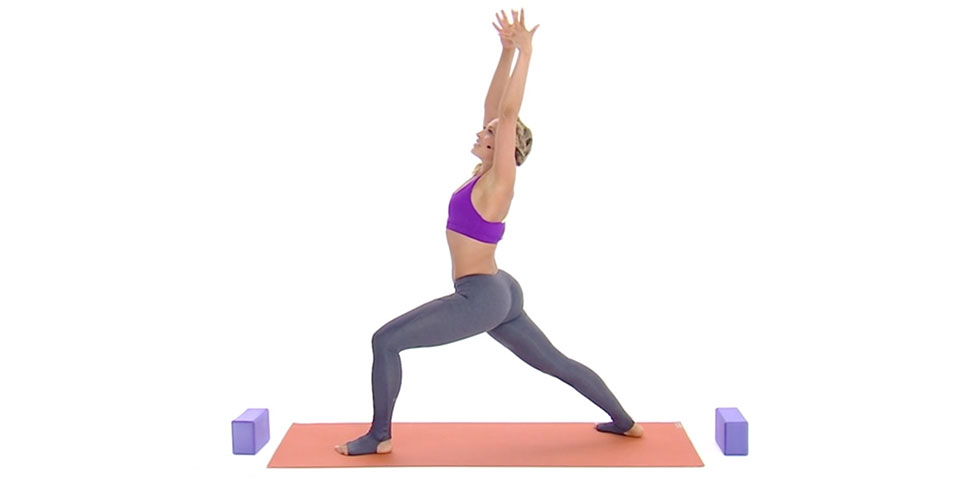
It might help to pick one habit that you love if you have trouble developing healthy habits. This article gives tips on how you can make this happen. Once you have decided on a habit to adopt, be sure to note what you want, the short-term, long-term, and reward goals. This will help you create a plan for how to implement it.
Small changes to your daily life can make a huge difference
Small changes to your daily life can bring many benefits. Even small changes can help improve your mood and keep you healthier. Habit formation occurs when small changes become automatic. These small changes don't necessarily have to make a big difference in your life, but over time they can lead to better health. Try implementing these changes into your daily routine for maximum benefits. Even if this is not something you're an expert at, don't fret! This article will demonstrate how to make small, positive changes in your life to make it more enjoyable and healthy.
You will notice positive changes in your overall health if you incorporate healthy habits into your everyday life. These habits are easy to establish and simple to keep. It is better to start with smaller changes than making big changes. Making small changes to your routine can make a big difference in your health. A "new food challenge" is a great way to start improving your diet by introducing new ingredients to your everyday meals.
Focus on the habit that you enjoy
A healthy habit can be built by focusing on something that you love doing. If you have something you look forward to, you will be more likely to stick with your goals. It can be difficult to create new habits, but you can do it with some guidance. It is important to start with a favorite habit in order to make these new habits stick. Start with an activity that you are passionate about if you have been putting off exercising for a while or giving up smoking.

After you have decided to adopt a habit, you need to plan for any resistance. You can plan ahead for possible excuses and then troubleshoot them to avoid them becoming excuses. Acknowledging these obstacles will help you reduce excuses. Also, remember to create an actionable plan to combat any possible obstacles. If you have a plan for creating new habits, it will make the process much easier.
Small goals are important
You can set small goals to help you develop healthy habits. You will have greater flexibility to reach your goals. You have the option to continue your goal or change it. Setting small goals will allow you to have greater control over your progress. Your goals will grow over time if you stick to them. You'll be amazed at how quickly they work.
Training for a 10k race will result in you burning more calories. You can reduce your cholesterol by switching to a plant based diet. Setting a smaller goal in relation to your long-term goal of running a full marathon is a good idea. This will encourage you to keep going. These goals will become more realistic as you achieve them. It is the same for smaller goals.
Keep track of your progress
A good way to motivate yourself is to keep track your progress as you build healthy habits. It can be as simple as keeping a journal or a wall calendar. It depends on what your goal is, you might want to add more complex actions. Start small to establish a habit. You can track how much water you drink each day to keep you motivated.
There are some apps that are easier than others. Fitbit is a popular app that tracks your steps, water intake and mood. The app is cross-platform and offers a free trial for a week. Everyday is another habit-tracking app. Everyday uses a visual dashboard with a chain-based system to aid in habit formation.
Rewards yourself for developing healthy habits

A reward can be anything that you enjoy. This could be anything, including a treat like a nap in the afternoon or a slice of cake as dessert. The reward you receive for developing a healthy habit should align with your overall goal. It should be something you enjoy. The reward must be easy to attain, personally valuable, and align with your overall goal. To keep yourself motivated, this reward strategy is best when you offer short-term rewards.
It can be hard to make new habits stick, and sometimes it's necessary to use bribery to motivate yourself. Science is here to help you: Creating a new habit takes a combination both of willpower as well as external factors. Consider where you spend your most time. Are there situations or activities you can modify to make it easier for your new healthy lifestyle?
FAQ
Which 5 ways can we improve our wellbeing?
A person's well-being can be defined as their "state of mental, physical, spiritual, or social well-being". There are many factors that affect our well being, including work, family, health, relationships and finances. The first step in improving your well-being involves identifying the areas of your life that need improvement. Next, change these things to improve your well-being.
Here are five easy ways to improve your wellbeing
-
Exercise - It boosts endorphins, which can make us happier.
-
Sleep – A longer sleep time reduces stress and anxiety.
-
Nutrition – Healthy foods such as fruits & vegetables can boost your mood.
-
Meditation - Regular meditation helps to reduce stress and anxiety.
-
Socialization – It's important to spend time with loved ones and make friends.
What does my mental health have to do with my relationships?
Your mental well-being has a direct impact on all aspects of your life. Your ability to function at work, school, home and at school can be affected. A mental illness can make it difficult for you to have meaningful relationships.
It's easy for people to judge you when you have a mental illness. You might avoid social situations or feel unworthy because no one understands.
You must remember that people want you to be around them. They just need the ability to approach you.
If you are having difficulty connecting with others, talk to them about it. Ask them to help you.
What should I do when I'm experiencing mental health problems?
When you have any kind of mental health problem, it's important to seek treatment. Perhaps you've been through trauma or suffered abuse in the past. It's possible that this has affected how you think about yourself.
An eating disorder, addiction, and other mental illnesses could also be a problem. These disorders can have a devastating effect on your life.
You shouldn't try to deal with them on your own. Instead, talk to someone who can help you. You can get the support you need from a professional therapist to help you overcome these difficulties.
Statistics
- Appropriate nutrition and exercise are likely among the most efficacious and cost-effective positive mental health interventions. (ncbi.nlm.nih.gov)
- Similarly, for positive mental health, there is likely to be substantial agreement about some typical components (e.g., resilience to stress) 6, and controversy about more atypical components (e.g., career consolidation). (ncbi.nlm.nih.gov)
- Similarly, while there is some agreement about the boundaries of typical mental disorders 2, there is likely less agreement about those for positive mental health. (ncbi.nlm.nih.gov)
- It means no drinking any alcoholic beverages and no taking any drugs that aren't 100% natural.
- More than 40 million adults in the United States have an anxiety disorder, but less than 37% of people seek mental health treatment for their symptoms. (talkspace.com)
External Links
How To
How to Manage Stress
Stress is a natural part of our lives. But when we feel stressed, it's important to find ways to relax. Stress affects every aspect of your life. Stress can cause physical problems, including headaches. You may even develop ulcers if you're under chronic stress.
There are many methods to reduce stress. Exercise is a great way to release endorphins. This makes you happy, relaxed, as well as calm. Meditation reduces stress by slowing down and deepening your breathing. Yoga is another great option to relieve stress and improve your overall health.
Stress management is best done by learning how to control it and then eliminating it entirely. Ask someone who is experienced to help you.